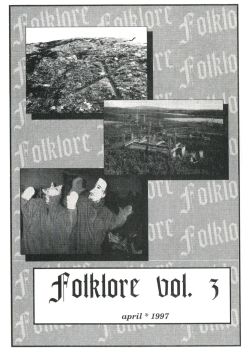
Media: Russia’s Media Imperialism
A revanchist Kremlin exports its own toxic brand of media management.
More...We kindly inform you that, as long as the subject affiliation of our 300.000+ articles is in progress, you might get unsufficient or no results on your third level or second level search. In this case, please broaden your search criteria.

A revanchist Kremlin exports its own toxic brand of media management.
More...
Plus, Macedonia gets a new-old government, and Czech scientists say they have a Lyme disease vaccine. Around the Bloc is TOL's daily digest of the important, the trivial, the tragic, the weird, and the sober from its coverage region.
More...
Plus, the Czechs drop their human rights qualms about business with China, and Ukraine’s president wants to liberate detained journalists. Around the Bloc is TOL's daily digest of the important, the trivial, the tragic, the weird, and the sober from its coverage region.
More...
Also, Hungarian banks face a billion-euro loss on foreign-currency loans and Romania’s first brother is jailed for alleged criminal ties. Around the Bloc is TOL's daily digest of the important, the trivial, the tragic, the weird, and the sober from its coverage region.
More...
The Czech leader’s remarks on NATO and Russia are a source of worry and puzzlement in some quarters.
More...
Plus, Georgian Dream sweeps local elections and Poland’s central bank chief faces resignation calls after bad-mouthing his colleagues. Around the Bloc is TOL's daily digest of the important, the trivial, the tragic, the weird, and the sober from its coverage region.
More...



As the Obama administration rebuilds relations in Central Asia, a new survey warns that the region’s continuing descent into authoritarianism shouldn’t be forgotten.
More...
Leonid Yuzefovich’s latest joins the very short list of major novels on Russia’s Roaring ’90s
More...
With so many indicators pointed downward, and so many promises broken, Bulgaria’s youth greet this weekend’s elections with a yawn or a snicker.
More...
In the Bulgarian capital, election campaigning goes down nice and easy on a hot summer day.
More...
Twenty years ago this summer, the Baltic Way came like a giant arrow that struck the Berlin Wall from within.
More...
A prime minister makes an unexpected departure as some predict economic collapse and EU-accession limbo for his country.
More...
The economic and financial crime causes huge prejudices to the national economies, to the European Union budget and at the global level. The long-term consequences of this type of crime, are extremely visible at present, considering the effects of the global crisis that each of us experiences, but the responsibility factors are not aware yet of the serious danger to which they expose any states or nations, despite of the experts’ warnings in the economic and financial field, who are responsible for using all the available resources in order to bring to the attention, to know and counteract the effects arising from this type of crime. In this article, we propose to the experts in the field of the intellectual property rights, to examine the unspecific methods of committing the offences in the field of private copy. The illegal actions of the type of tax fraud, fair trade, forgery, use of forgery and all kinds of deceit actions are only a part of the criminal components being an integral part of the large range of the economic and financial crime within the territory of our country. Likewise, we try a theoretical exposure of the concepts with which the economic and financial crime operates in general and the consequences which it has over the intellectual property rights, summarizing at the same time the new maximum profit orientation trends of criminal organizations – criminal undertaking and the concrete way in which the vertical and horizontal crime may affect the financial interest of the rights’ owners seriously. Thus, we try to give a warning about the fact that the activity of the economic and financial crime groups has become a challenge for the national authorities, and the involvement of organized crime and the complexity of criminal networks at the national level result in the necessity to provide a more comprehensive interpretation of the criminal phenomenon present in our country.
More...
The scientific research theme aims to deepen a topical issue, i.e. to examine the legal requirements of performers’ rights from Romania, by collective management, to do a critical analysis of the regulation in our country and to contribute thereby to the correction of the law, to its harmonization with the EU countries. Intellectual creation has some amazing features: it is invisible, it can be passed across borders, it can be multiplied to infinity and its value increases steadily over time. Any country that cares about its traditions and seeks to make progress in the field of culture, of science and education, must recognize, encourage and protect intellectual creation. The copyright neighboring rights or "les droits voisins" as they were called in doctrine and jurisprudence, have been regulated for the first time in the Romanian law by the Law no.8 /1996 on copyright and neighboring rights. The neighboring rights are intellectual property rights, other than the copyright, granted to performers for their own performances or executions, to sound recordings producers and audiovisual recordings producers for their own recordings, and to broadcasting organizations (radio and television) for their own transmissions and program services. Performers’ rights can be managed mandatory or optionally by the collective management societies. The collective management of copyright and neighboring rights is a necessary step for implementation of certain rights in comparison with various ways of exploitation. Since the beginning, some of performers’ economic rights proved difficult to assess individually. The technical progress and widespread mass exploitation have made individual control virtually impossible. Collective management primarily involves the collection of remuneration payable by users/importers and its distribution to those entitled to it, proportional to the actual use of each repertory, within 6 months from collection date.
More...
This study is intended to expose the evidence and the means of evidence in the civil and criminal causes having as subject matter the trademark counterfeiting in Romania. Thus, an examination of the evidence shall be carried out (notion, object, importance, burden of evidence), the means of evidence used in these cases, the method of their consideration by the courts, novelty aspects regarding the evidence produced in the criminal cases of trademark counterfeiting in Romania.
More...
The article approaches, from the criminal proceedings and crime’s perspective, the arrangement of the technical and scientific findings and of the examinations in case of the investigation of offences set forth in art. 1396 of Law no. 8/1996 on the copyright and related rights. The main examined aspects are represented by certain prior specifications regarding the technical and scientific findings and the examinations, the procedure of performing the technical and scientific finding and of the examination, their probative value, as well as by certain theoretical and practical aspects regarding the arrangement of the examinations in case of investigating the offences set forth in art. 1396 of Law no. 8/1996.
More...
Due to the differentiation between the laws of member states in the field of designs and patterns, European Parliament and Council Directive no. 98/71/CE from October 13, 1998 on legal protection of designs and patters, has implemented a protection system of designs and patters adapted to domestic market needs. Based on the Directive no. 98/71/CE, Council Regulation (EU) no. 6/2002 from December 12, 2001 on community designs and patters has been issued, which is compulsory in all its elements and which applies directly in all member states. Thus, a special legal protection has been provided meant to encourage individual creators, to bring forward innovation, the development of new products and the investments in their fabrication. To implement the provisions of the Regulation (EU) no. 6/2002, Commission Regulation (EU) no. 2245/2002 from October 21, 2002 has been adopted. All these regulations are intended to provide protection of designs and patterns, and for this purpose two forms of protection are deemed as necessary, namely a long-term one, corresponding to the design or patters not registered, and a short-term one, corresponding to the design and patters registered. In this paper we shall present in detail these forms of protection, as well as the substantive and formal conditions necessary to be fulfilled for the registration of designs and patterns. The presentation shall be founded on legal regulations mentioned above that are enforceable and binding also on the Romanian territory, a legal protection of designs and patterns been thus provided not only inland but also intra-community. The purpose of the paper is to highlight also the necessity of designs and patterns protection, a sine-qua-non condition for the development of new products and investments.
More...